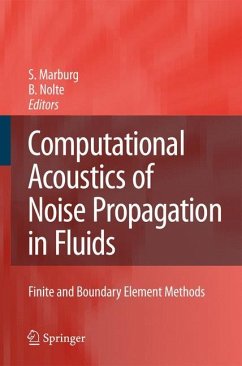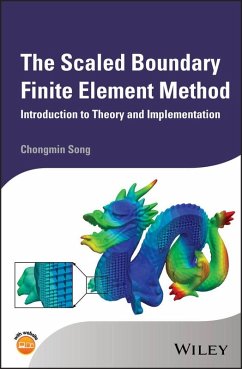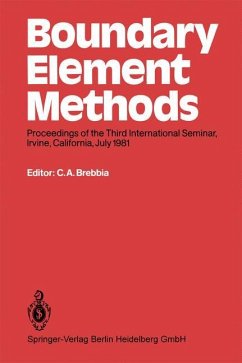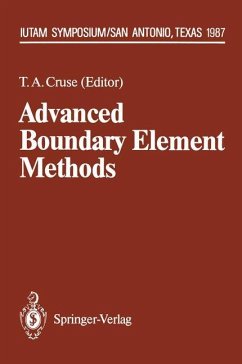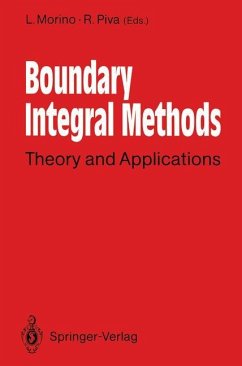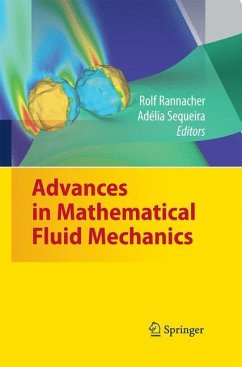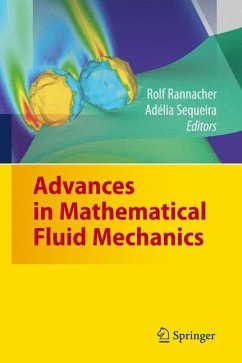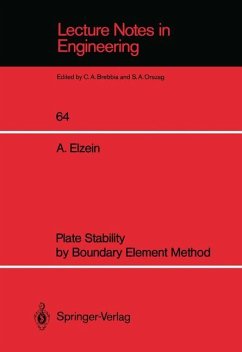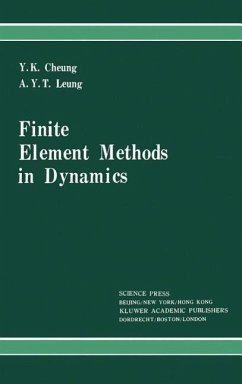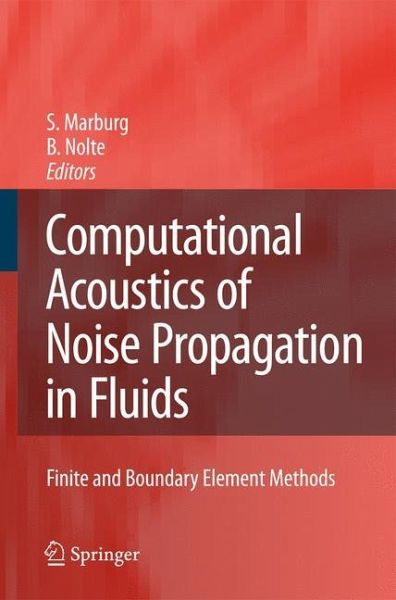
Computational Acoustics of Noise Propagation in Fluids - Finite and Boundary Element Methods
Versandkostenfrei!
Versandfertig in 6-10 Tagen
113,99 €
inkl. MwSt.

PAYBACK Punkte
57 °P sammeln!
Among numerical methods applied in acoustics, the Finite Element Method (FEM) is normally favored for interior problems whereas the Boundary Element Method (BEM) is quite popular for exterior ones.That is why this valuable reference provides a complete survey of methods for computational acoustics, namely FEM and BEM. It demonstrates that both methods can be effectively used in the complementary cases.The chapters by well-known authors are evenly balanced: 10 chapters on FEM and 10 on BEM. An initial conceptual chapter describes the derivation of the wave equation and supplies a unified approa...
Among numerical methods applied in acoustics, the Finite Element Method (FEM) is normally favored for interior problems whereas the Boundary Element Method (BEM) is quite popular for exterior ones.
That is why this valuable reference provides a complete survey of methods for computational acoustics, namely FEM and BEM. It demonstrates that both methods can be effectively used in the complementary cases.
The chapters by well-known authors are evenly balanced: 10 chapters on FEM and 10 on BEM. An initial conceptual chapter describes the derivation of the wave equation and supplies a unified approach to FEM and BEM for the harmonic case. A categorization of the remaining chapters and a personal outlook complete this introduction. In what follows, both FEM and BEM are discussed in the context of very different problems.
Firstly, this comprises numerical issues, e.g. convergence, multi-frequency solutions and highly efficient methods; and secondly,solutions techniques for the particular difficulties that arise with external problems, e.g. discussion of absorbing boundaries for FEM and treatment of the non-uniqueness problem for BEM. Finally, both parts on FEM and on BEM are completed by chapters on related problems, e.g. formulations for fluid-structure interaction. In addition to time-harmonic problems, transient problems are considered in some chapters. Many theoretical and industrial applications are presented.
Overall, this book is a unified review of the state-of-the-art on FEM and BEM for computational acoustics.
That is why this valuable reference provides a complete survey of methods for computational acoustics, namely FEM and BEM. It demonstrates that both methods can be effectively used in the complementary cases.
The chapters by well-known authors are evenly balanced: 10 chapters on FEM and 10 on BEM. An initial conceptual chapter describes the derivation of the wave equation and supplies a unified approach to FEM and BEM for the harmonic case. A categorization of the remaining chapters and a personal outlook complete this introduction. In what follows, both FEM and BEM are discussed in the context of very different problems.
Firstly, this comprises numerical issues, e.g. convergence, multi-frequency solutions and highly efficient methods; and secondly,solutions techniques for the particular difficulties that arise with external problems, e.g. discussion of absorbing boundaries for FEM and treatment of the non-uniqueness problem for BEM. Finally, both parts on FEM and on BEM are completed by chapters on related problems, e.g. formulations for fluid-structure interaction. In addition to time-harmonic problems, transient problems are considered in some chapters. Many theoretical and industrial applications are presented.
Overall, this book is a unified review of the state-of-the-art on FEM and BEM for computational acoustics.





